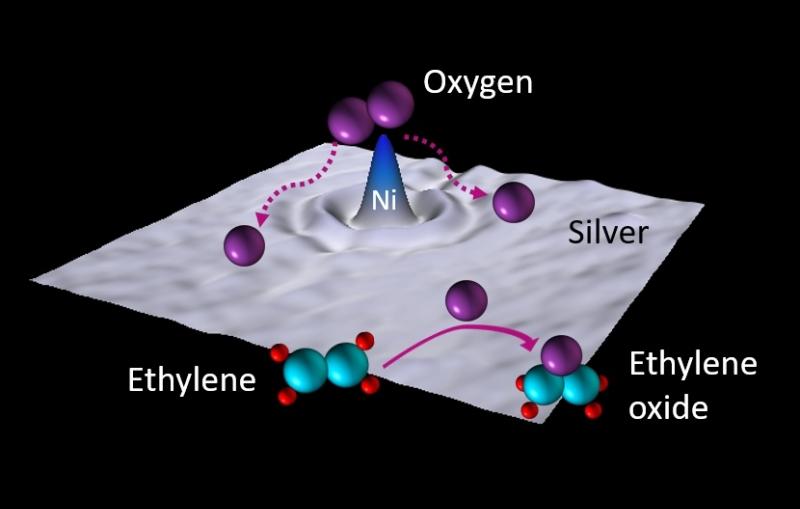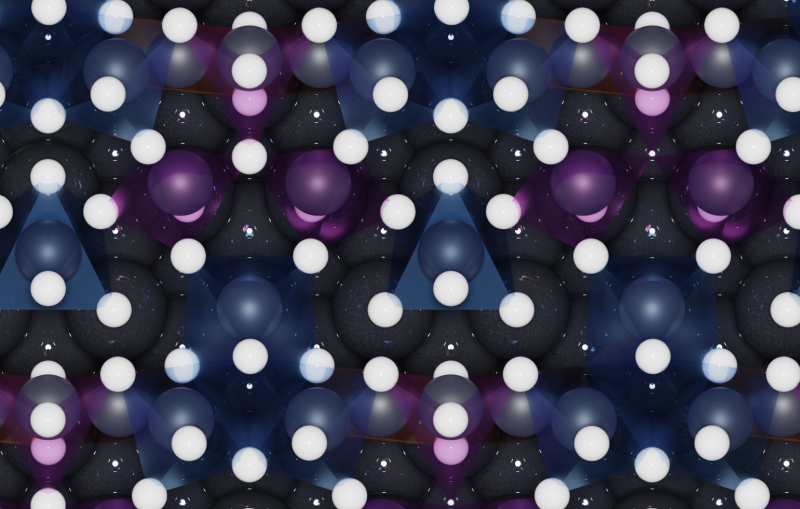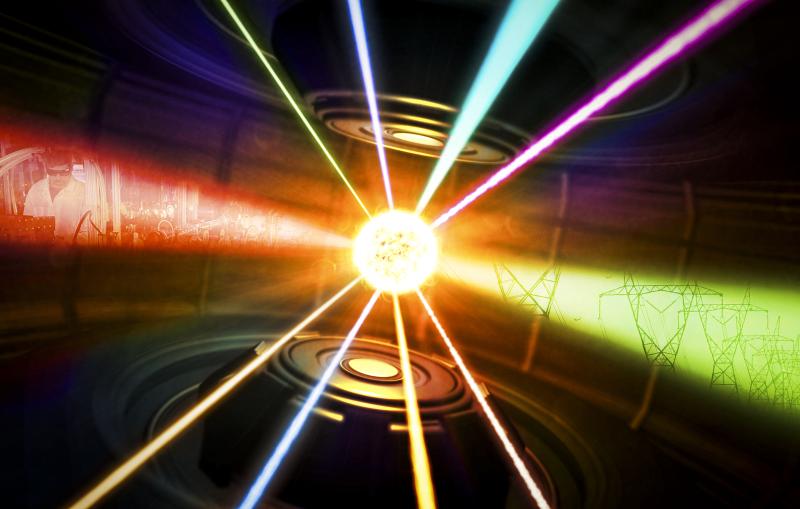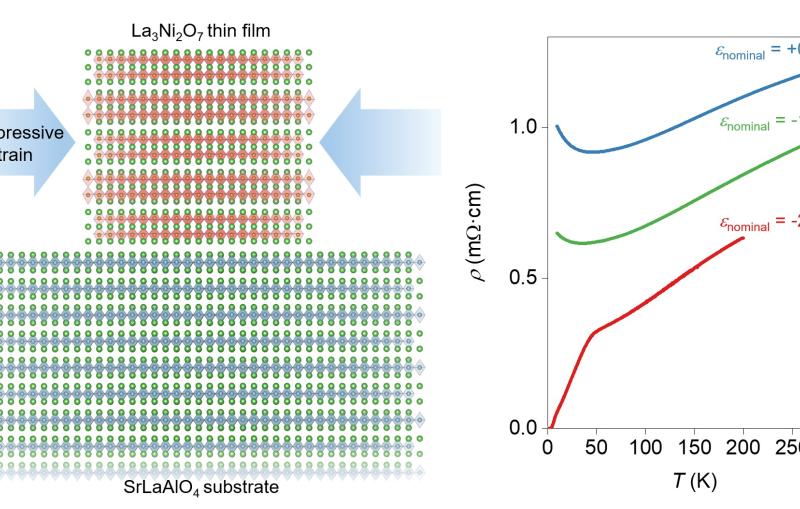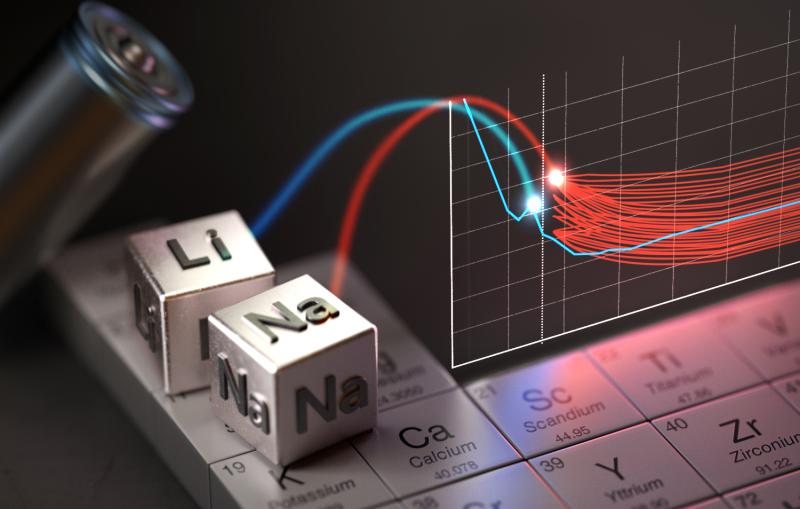Yi Cui will receive E.O. Lawrence Award
A pioneer in clean energy technology at Stanford and SLAC, he is one of eight scientists and engineers honored by the U.S. Department of Energy.
Yi Cui, a professor at Stanford University and the Department of Energy’s SLAC National Accelerator Laboratory, will receive the DOE’s Ernest Orlando Lawrence Award, which honors mid-career scientists and engineers in eight research fields.
Recipients will receive a medal and a $20,000 honorarium, and will be honored at a virtual ceremony broadcast from Washington, DC, on Jan. 19.
“These researchers have made significant advances and contributions across a broad range of disciplines critical to Energy Department missions,” said Energy Secretary Dan Brouillette in announcing the award. “We congratulate them on their many accomplishments and look forward to their achievements in the coming years.”
A pioneer in developing clean-energy technology, Cui was recently named director of Stanford’s Precourt Institute for Energy. He is being honored for his “insightful introduction of nanosciences in battery research,” the announcement said, adding, “His multiple innovative ideas have transformed the battery field in a very impactful way and enabled new types of high energy density batteries and low-cost energy storage solutions.”
The DOE cited Cui’s research on developing new electrode materials that can store 10 times more charge in a given volume, including silicon anodes, lithium-metal anodes, and sulfur cathodes, which has reinvigorated battery research. Cui was also the first to develop cryogenic electron microscopy techniques for studying battery materials, including a study that captured the first atomic-level images of finger-like growths called dendrites that can pierce the barrier between battery compartments and trigger short circuits or fires.
“I feel humbled to receive this honor,” Cui said. “I would like to thank my students, collaborators, colleagues and mentors, and also thank the DOE for its long-term support of my research program. I hope to continue to help building the sustainable energy future."
SLAC Lab Director Chi-Chang Kao said, “Yi is continually coming up with new approaches to make batteries smaller, safer and more efficient. His work at the intersection of energy science and nanotechnology takes advantage of world-class expertise and facilities at Stanford and SLAC and deepens our understanding of materials that are crucial to the development of novel energy solutions.”
Applying nanotech to clean energy
Born in Guangxi, an autonomous region of China, Cui earned a bachelor’s degree in chemistry from the University of Science & Technology of China and a PhD in physical chemistry at Harvard in 2002. Then he joined the University of California Berkeley and DOE’s Lawrence Berkeley National Laboratory as a Miller postdoctoral fellow.
Stanford Professor Steven Chu was director of Berkeley Lab at the time, and Cui credits his influence with bending a longtime interest in nanotechnology toward clean energy problems, according to a Stanford profile of his work.
In 2005 he came to Stanford, where he has become one of the most cited researchers in his field. He is currently a professor of materials science and engineering at Stanford and of photon science at SLAC; co-director of Precourt Institute’s StorageX Initiative; a director of the DOE’s Battery500 Consortium; an editor of the American Chemical Society’s peer-reviewed journal Nano Letters; and the founder of four companies to commercialize technologies from his lab. He is also a principal investigator with the Stanford Institute for Materials and Energy Sciences (SIMES), a joint institute of SLAC and Stanford.
The Lawrence Award was established in 1959 to honor the memory of Ernest Orlando Lawrence, who invented the cyclotron – an accelerator of subatomic particles – and received the 1939 Nobel Prize in physics for that achievement. Lawrence later played a leading role in establishing the U.S. system of national laboratories, and the Energy Department’s national laboratories in Berkeley and Livermore, California bear his name.
The Lawrence Award recognizes mid-career scientists and engineers in the United States who have advanced new research and scientific discovery in atomic, molecular, and chemical sciences; biological and environmental sciences; computer, information, and knowledge sciences; condensed matter and materials sciences; energy science and innovation; fusion and plasma sciences; high energy physics; national security and nonproliferation; and nuclear physics.
Other recipients of this year’s award are:
Krista S. Walton, Georgia Institute of Technology
Susannah G. Tringe, Lawrence Berkeley National Laboratory
Robert B. Ross, Argonne National Laboratory
M. Zahid Hasan, Princeton University and Lawrence Berkeley National Laboratory
Dustin H. Froula, University of Rochester
Dana M. Dattelbaum, Los Alamos National Laboratory
Daniel Kasen, University of California, Berkeley and Lawrence Berkeley National Laboratory
For questions or comments, contact the SLAC Office of Communications at communications@slac.stanford.edu.
SLAC is a vibrant multiprogram laboratory that explores how the universe works at the biggest, smallest and fastest scales and invents powerful tools used by scientists around the globe. With research spanning particle physics, astrophysics and cosmology, materials, chemistry, bio- and energy sciences and scientific computing, we help solve real-world problems and advance the interests of the nation.
SLAC is operated by Stanford University for the U.S. Department of Energy’s Office of Science. The Office of Science is the single largest supporter of basic research in the physical sciences in the United States and is working to address some of the most pressing challenges of our time.

